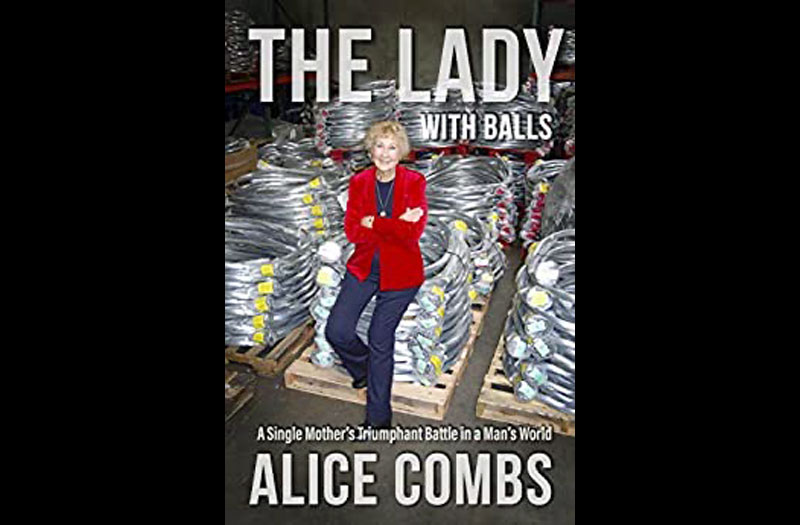Midwest Book Review just published an abridged version of our book review on Alice Combs’ The Lady With Balls. The full review is below.
I don’t want a mirror telling me I’m the fairest in all the land; I want another intelligent adult’s honest opinion. Alice Combs
This engaging book is actually three books in one: the very personal story of a strong-willed lady’s family, friends, affairs and motivations; the unlikely founding of a real live business by a woman in a man’s world, and a useful primer on “how to be an entrepreneur.”
The book proceeds at a rapid pace. Short but effective chapters pull the reader quickly along. I was off and running with the first line, “I hate the way thatman holds so much power over me.” I didn’t stop until I was done. (“That man” we find out later refers to Walt Osgood of Osgood Recycling. A run in with Osgood led to the author’s moniker, The Lady With Balls.)
Whether you find the author’s prolific libido amusing or shocking the romp through her love life spices up what could have been just another boring business book. It isn’t. Combs’ first marriage to Fritz (the father of her two girls) is followed by liaisons of varied duration with Bob, Ned, Les, Teddy Bear Tom, Bart, Al, San Diego Dave and finally the keeper: Michael. There were also unwelcome embraces and kisses from men like Nick at the garbage company who wanted to show Alice the baler in the back room or Drunken Dino, at the convention of the R.O.C.C. (The Royal Order of California Can Carriers). As the author makes clear throughout the book, “a lady in the garbage world has to be tough.” Combs convinces the reader that she is tough: I refuse to take shit from any man. At the same time she confesses: they didn’t know my well-kept secret: if I hadn’t been so desperate for my $5,000, I’d have quietly simmered and slunk away from that wretch[Osgood]. My reaction was instinctual; I felt like an animal that had to choose between fighting and not feeding her children.
“Power can be lonely,” she says when she’s the only one not to cower before Werner Erhard at an EST workshop. Combs’ loneliness derives from the unfortunate fact that women were during her career and still are not expected to be tough and powerful. Her very nature caused constant friction with her mother, her friends, her lovers, and business associates. In the end she made a success of her life both personally and professionally, a tribute to her inner strength and conviction.
Combs chose to be an entrepreneur out of necessity and pride. Spurned by Mervyn’s Department Store because she wasn’t “corporate material,” she vowed to never again “give another person the power to terminate” her. She built her own business “selling wire used to bind recyclable waste that formerly was burned or dumped into landfills.” She succeeded in building a company still in operation with over ten million in annual sales.
Her accomplishment required balancing family, partners, clients and finances. The book chronicles Combs’ exciting trip through life from the past to the present. She navigates the ups and downs with just the right combination of humor and seriousness and keeps the reader in suspense to the very end.
For some, the Trump-like silly names Combs’ bestows on her characters may be over the top (Sneaky Sara, Nightmare Nora, Meek Millie, Horrible Harriet, Boozy Bernie, British Brady, Big Rudy, Crooked Craig, Teddy Bear Tom, Songbird Bev, San Diego Dave and so on). For others, the names just add to the fun. And, the book isgreat fun.
The final chapter, Seven Basic Business Lessons, is practical and concise. Good information to know if you are starting a business.
While writing came late to her skillset, she can write well and her book is lively and entertaining. I can recommend it without reservation.


Good one, King David.
I love these stories. I think Pelosi will go down as Churchill with balls.